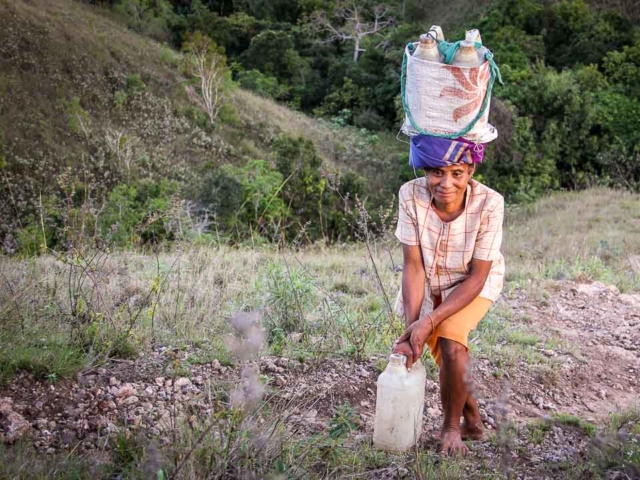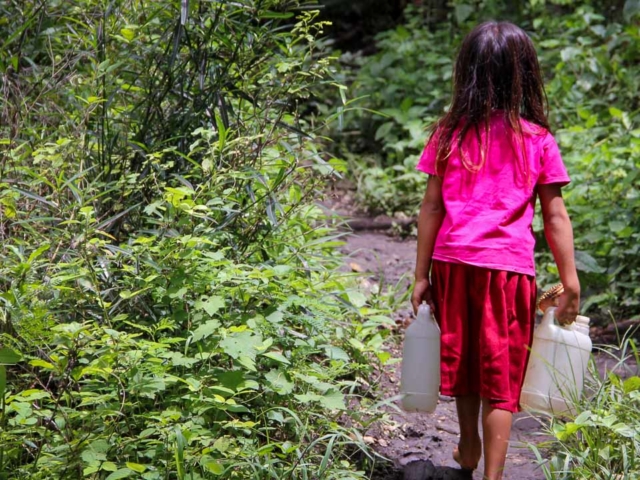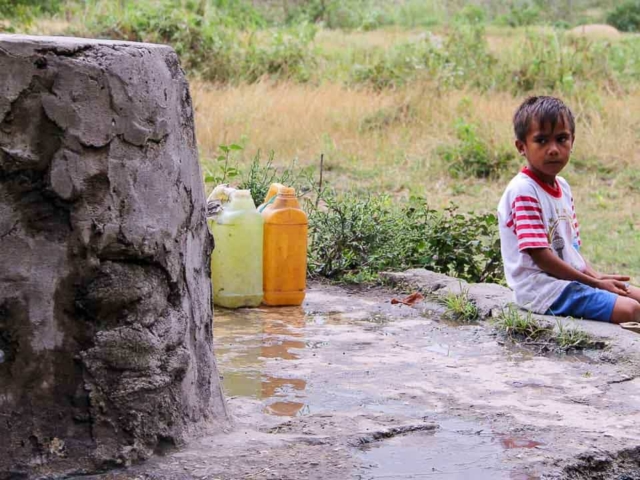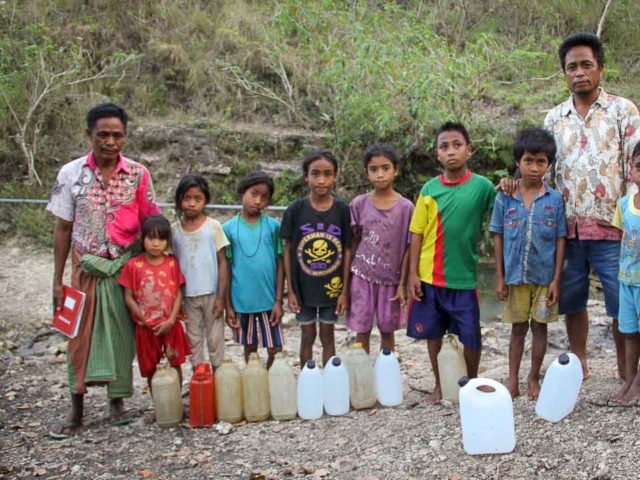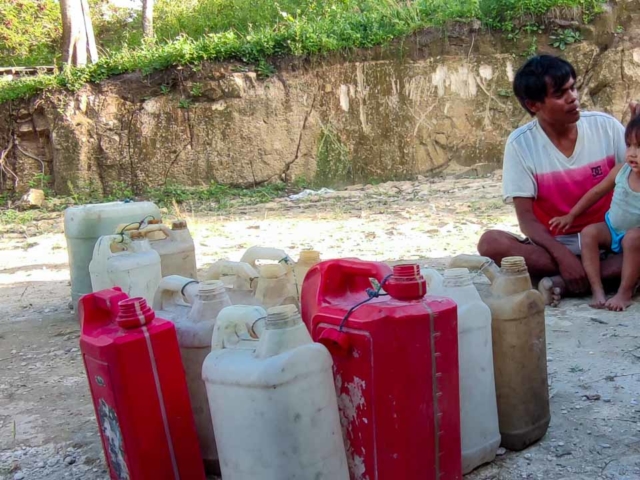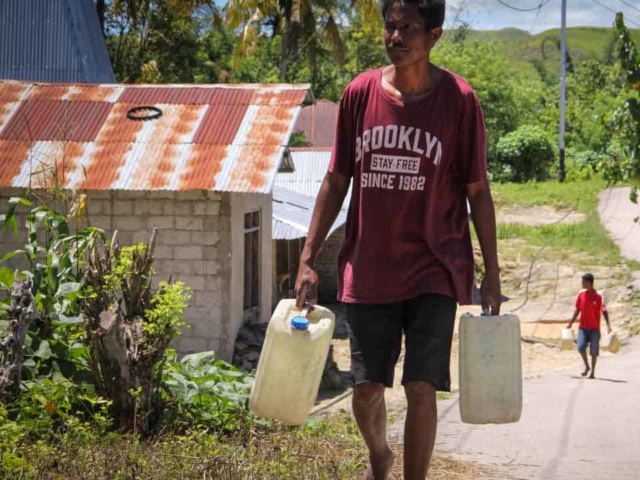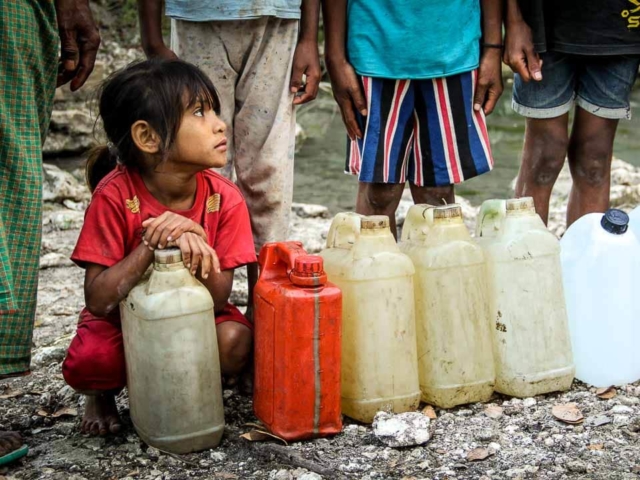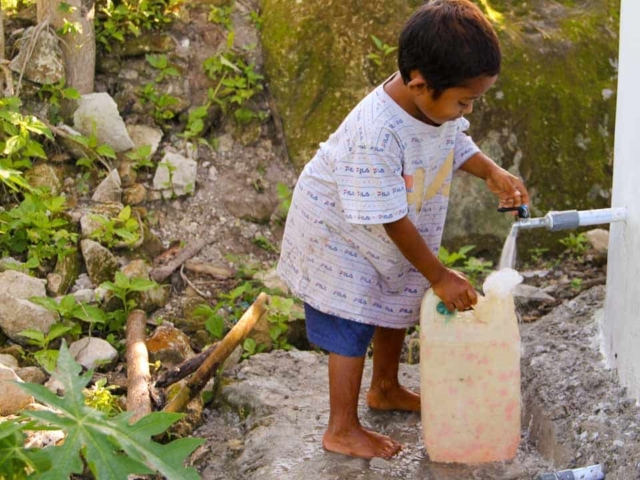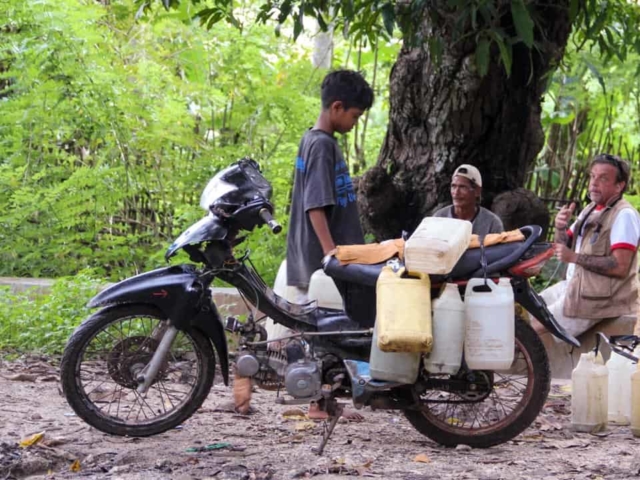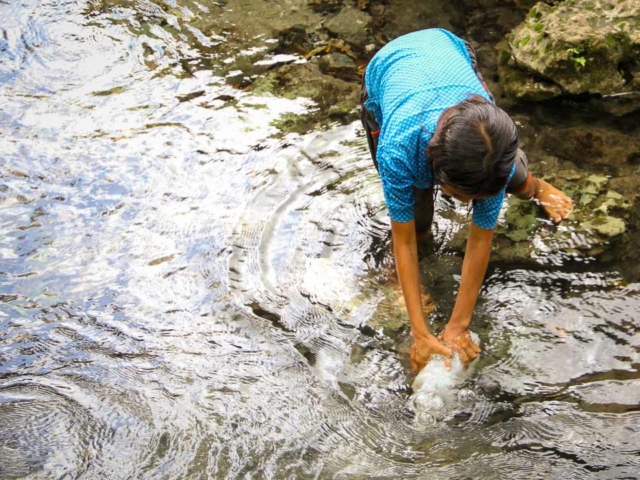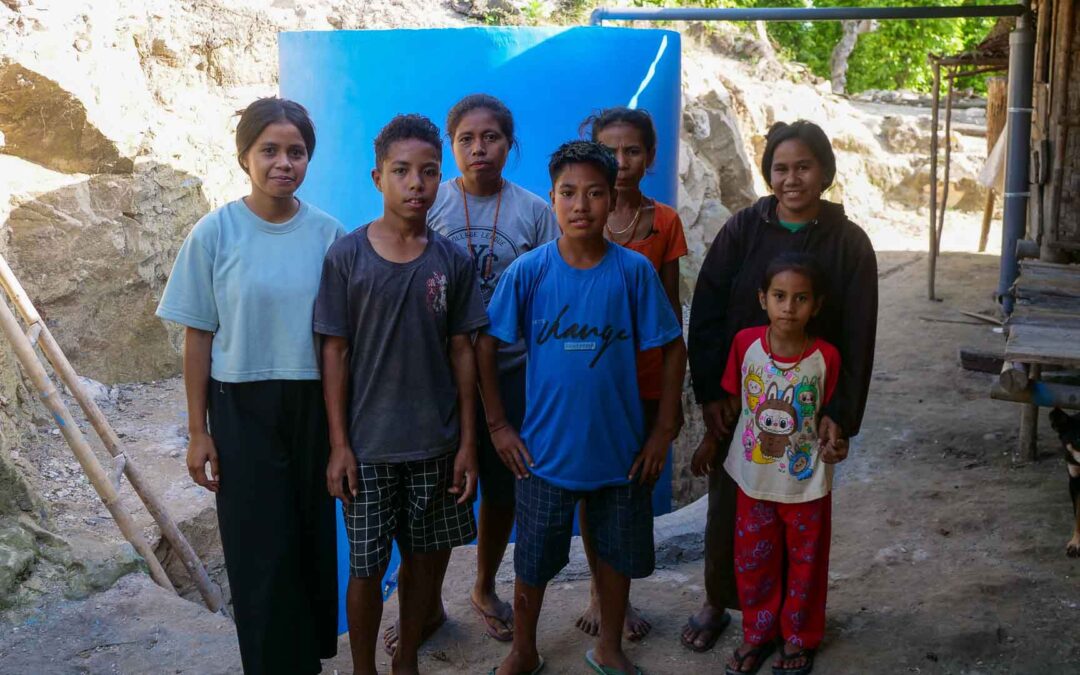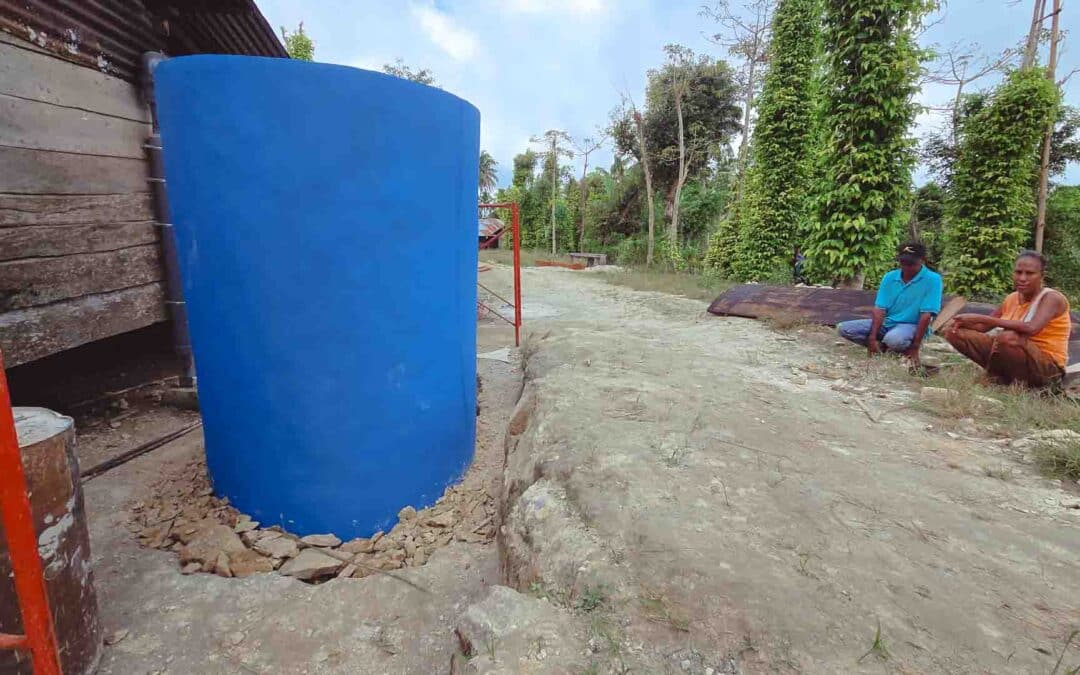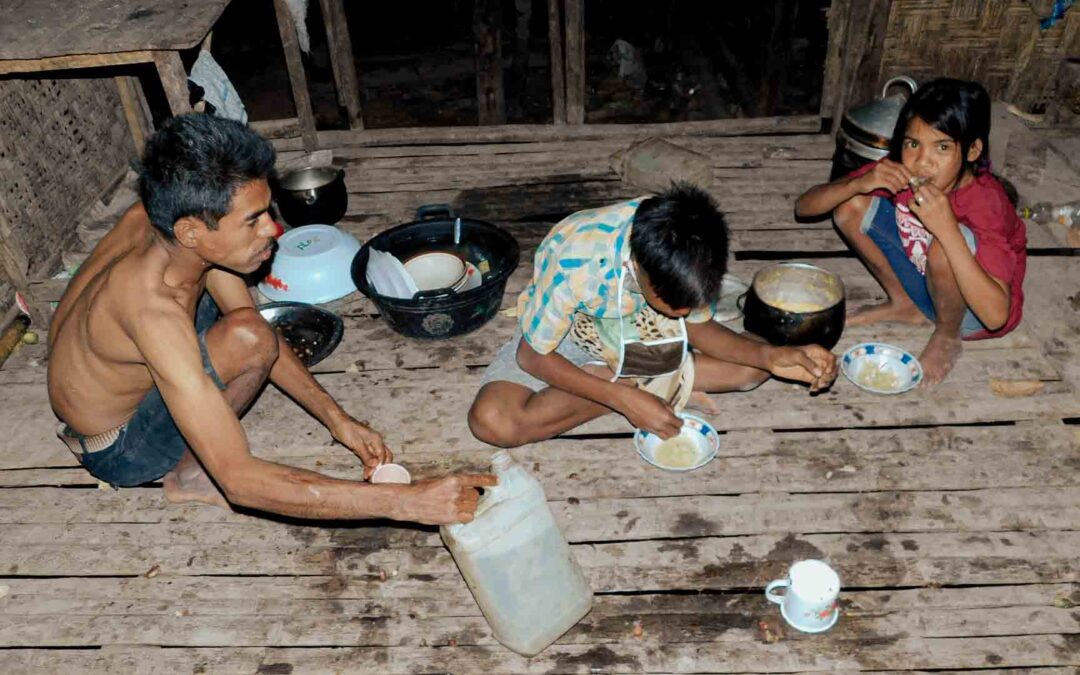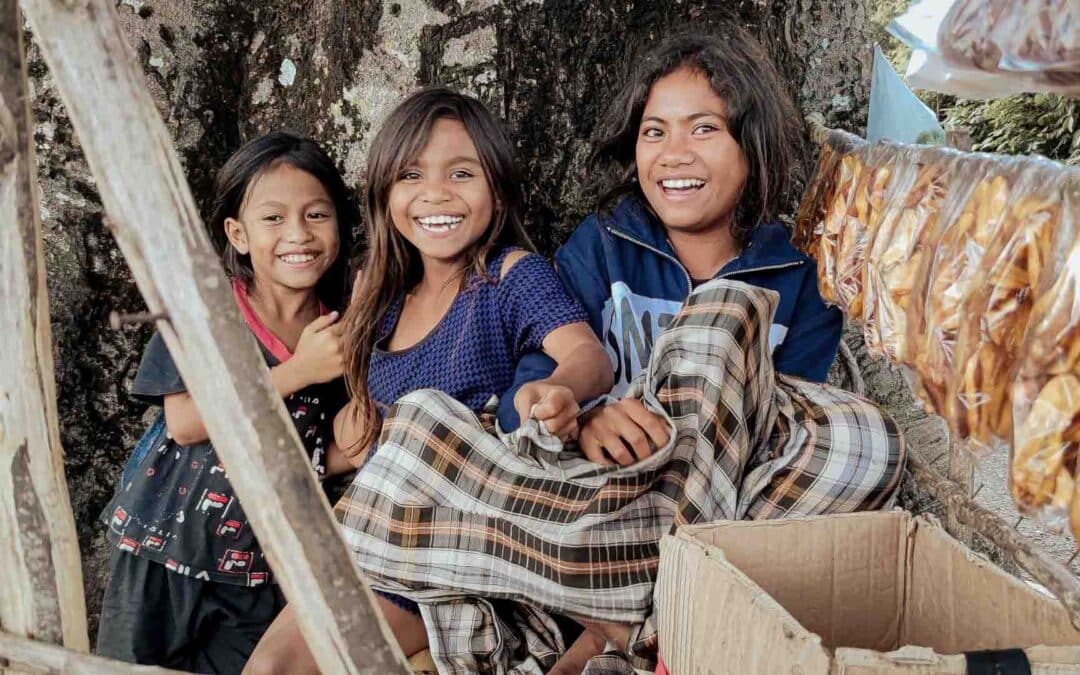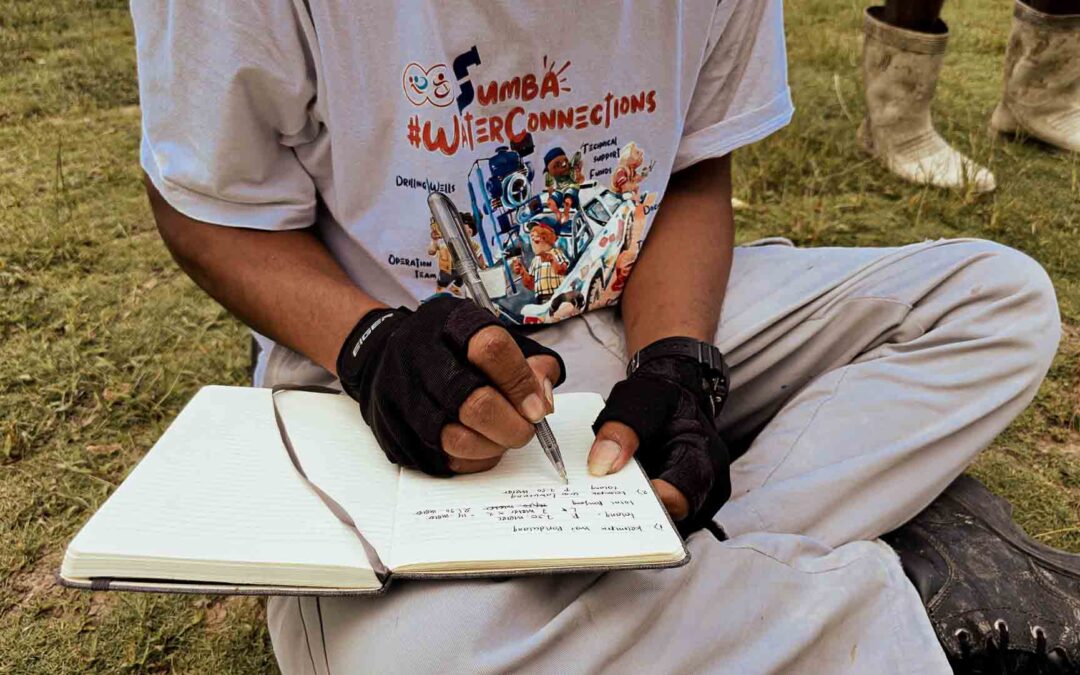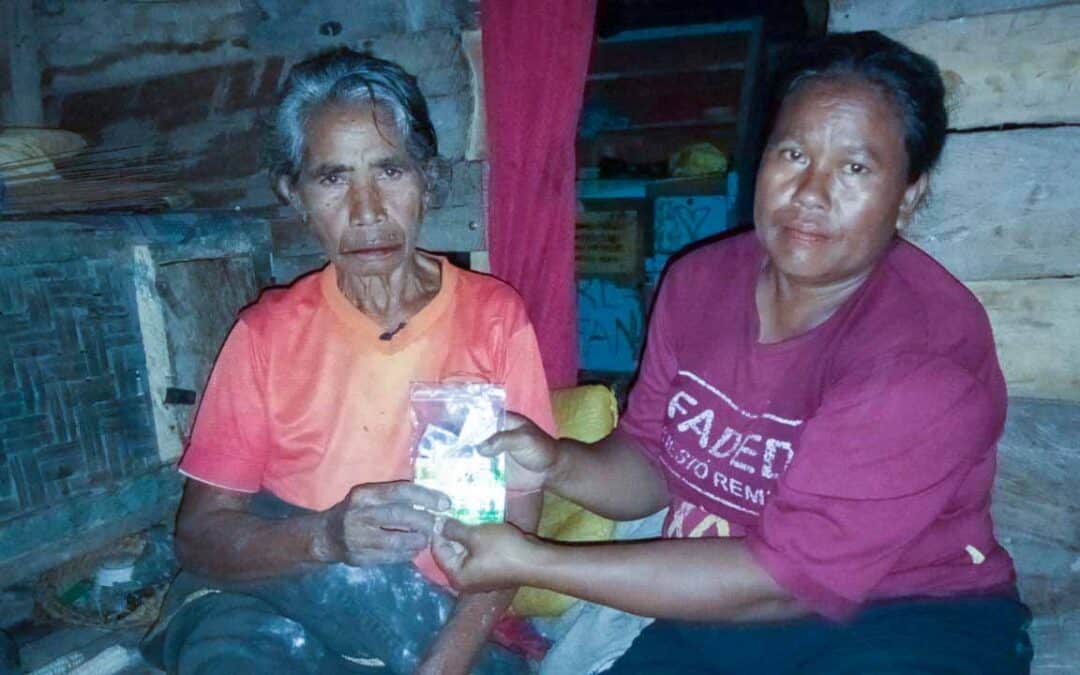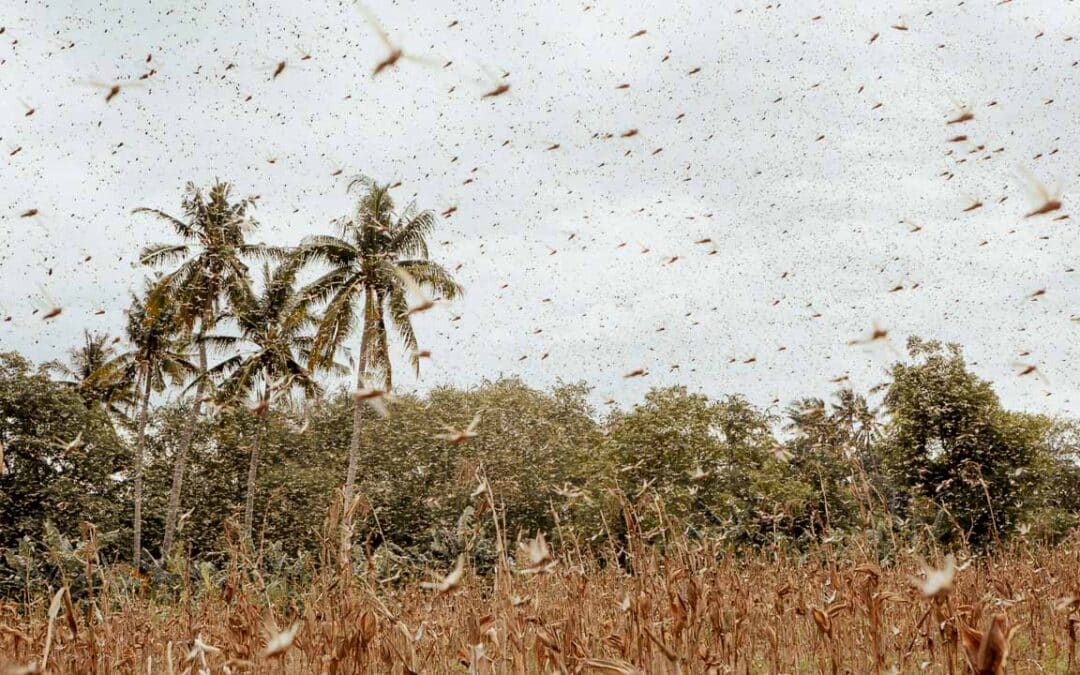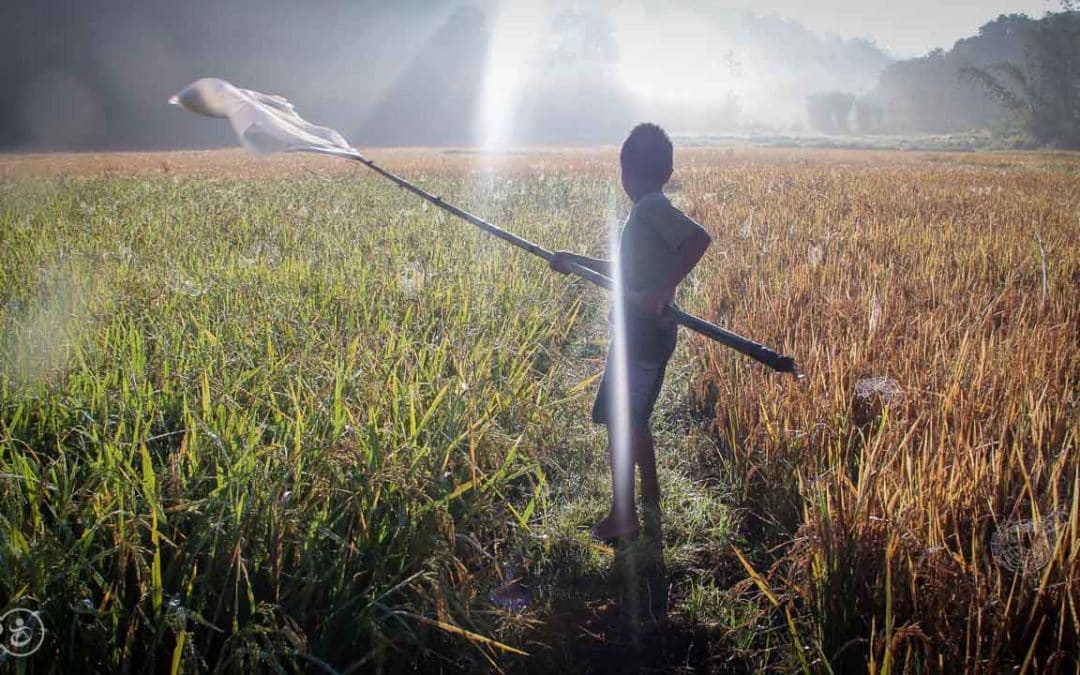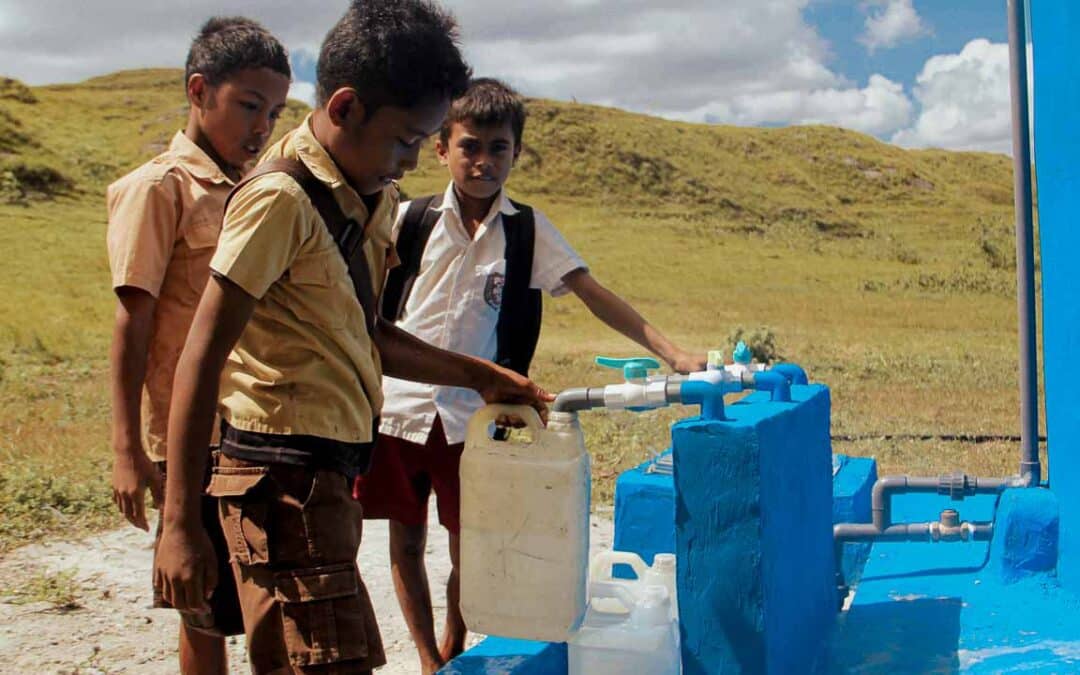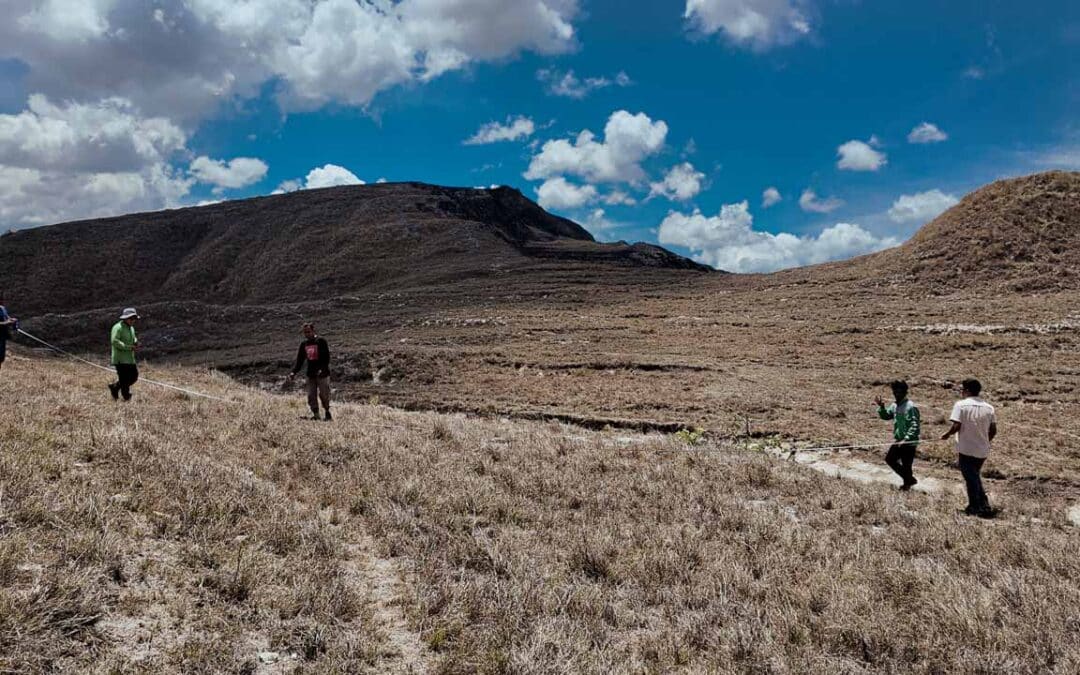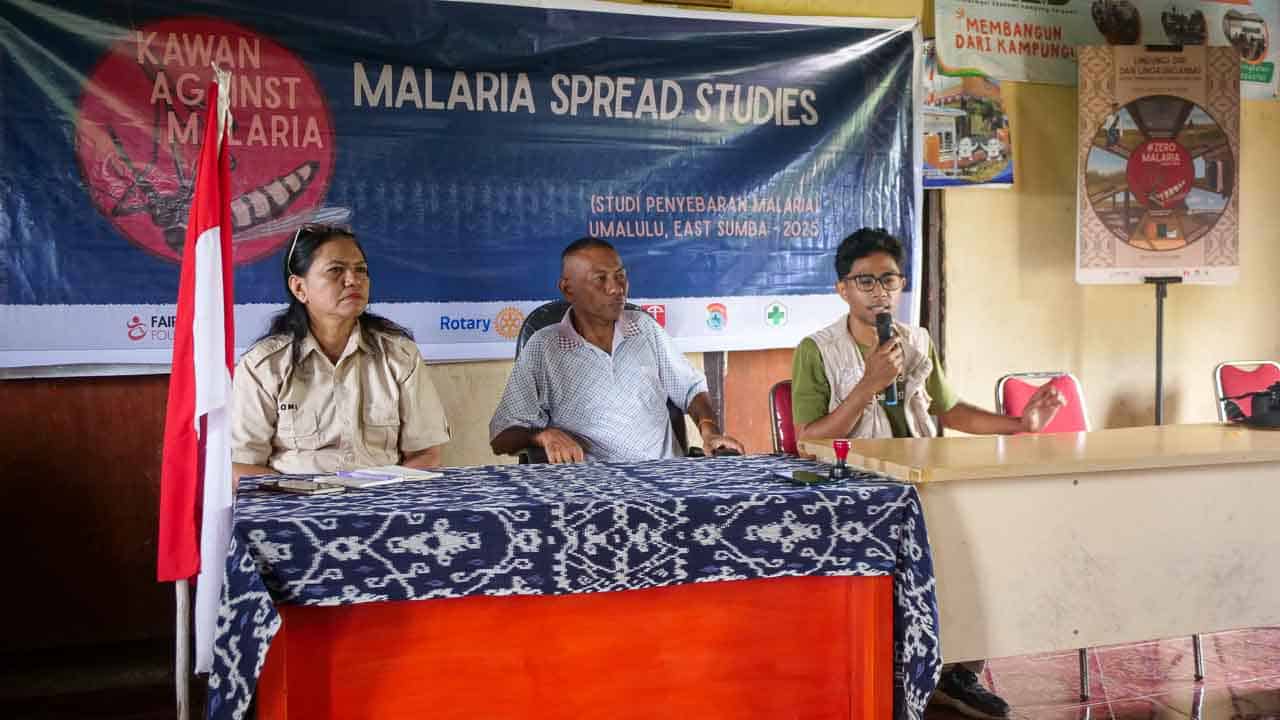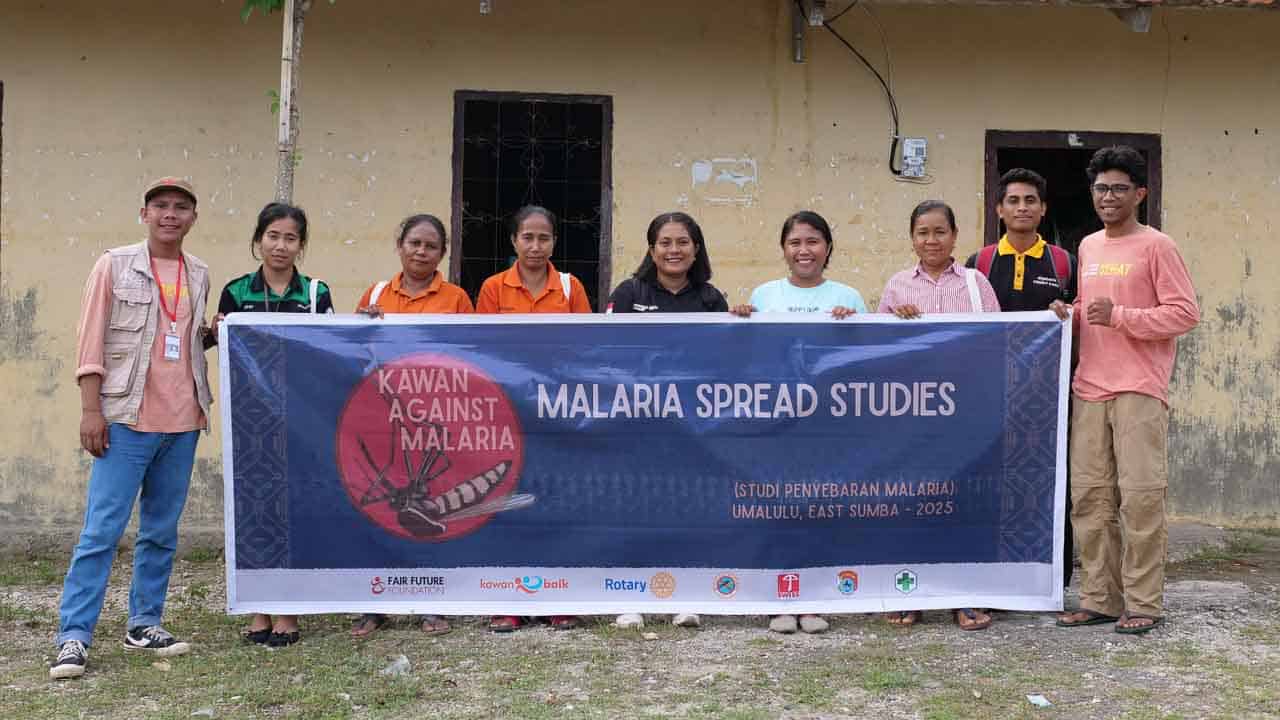Why is a simple dirty plastic container, with a capacity of five litres, essential for the life of tens of thousands of families here?
The jerry cans? They are essential because it is the only way, or the cheapest way, to fetch water from wells and sources far from places of residence.
Collecting water, often far from home, is one of the main tasks for all families in the ultra-rural areas of East Sumba. Most of the time, the girls and women of the village devote themselves to this exhausting work. Five litres is the capacity of a jerrycan. And this small amount of water will be used by family members who, on average, can only use 2-3 litres per day per person.
Far from home, meaning having to walk to the nearest spring. Most of them, unfortunately, have a level of pollution which can be high there, because it is common for people to do their laundry and bathe there, but also for animals and livestock to do their small business there too.
Let’s go back to the jerry cans: What, for most of us, is an object that will inevitably end its existence in the trash of the house, here a simple jerry can (or anything that can be used to contain a liquid) is worth gold. But getting them is not so simple: You have to go to the nearest town, often hours away, take the bus, or if you have a scooter, go there. But the bus and gasoline are expensive, so we can also ask the bus driver to bring us some.
You also have to buy them: An empty, unwashed jerrycan of cooking oil is worth IDR.10,000.-. A new one will be worth two to three times as much. It is costly for these families with no income or savings. When they have a little money, they use it to eat or buy cigarettes. The lifespan of jerry cans is unlimited or almost: They will serve repeatedly, and if they should leak, they will be repaired with glue. Often after years of good service, they are so dirty that their colour has changed from Transparent to dark grey. Some are around ten years old and have travelled thousands of kilometres on the heads of these children from East Sumba.
These objects, so essential for all of us, are also convenient for them here because they have a cap. But all here also use plastic to make a rudimentary “seal” to make the container airtight. This is so as not to lose a single drop of water along the way. While you must walk a few kilometres to fetch water, the 5-litres jerry cans are the most practical way to bring it home. A five-year-old girl will carry only one on her head, and an older one can carry three: One on her head and the other at arm’s length.
Here at Rumah Kambera, Fair Future and Kawan Baik staff have recovered several old ones. We exchanged them for new ones, which we brought filled with water, clean and healthy with the Truck of Life.
In a few days from now, we will work in these villages without water and electricity. We will swap other old jerry cans for new ones. These are real testimonies, like some people’s faces: Marked by hours of exhausting walking and work, exhausting fatigue; they are often beautiful faces that we do not forget.
We wish you a beautiful day wherever you are. Remember to take care of yourself and everyone you love. It is the most important.
Alex Wettstein – Fair Future Foundation – 27.02.2023, Rumah Kambera.
This article illustrated with some of our photographs
By the way, do you know what Kawan Baik means? Nope? So click here to find out Kawan!


